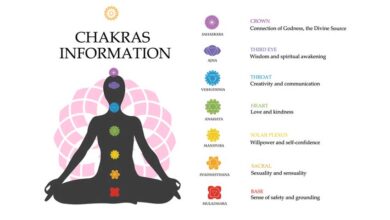
Asthma Warning Signs: What You Need To Know
It’s crucial that you and your child know what the signs are if they have asthma. The signs and symptoms of asthma can manifest in many other ways than inability to breath. You should be aware of the signs and symptoms of allergy warnings. You can find a lot of information on Asthalin Tablets, such as Iverheal 6 or Iverheal 12.
Adult-Onset Asthma Treatment, Diagnose, and Symptoms
Many people over 60 believe allergies are chronic diseases. Many people who have asthma are diagnosed in their teens. However, many may not realize they have allergies until their later years. Because asthma can be associated with multiple lung conditions, diagnosing person-onset asthma can present a challenge for doctors. It is important for adults to be aware of their diagnosis and take steps to protect themselves from bronchial asthma. Let’s look at what allergies are adult-onset.
6 The Asthma Initiative Is On To Happen
Keep in mind that not all symptoms are the same. They can vary in their severity and frequency. These are some of the most common symptoms and warning signs of an allergic attack. Iversun 12 and Iversun 6 are the best pills to stop breathing problems.
Tight Neck or Chest
Your infant might feel a tightening of their airways. This could cause a sensation in their neck and chest. Your baby will have difficulty taking more than a shallow, shallow breath when the muscles contract and oxygen intake decreases.
Severe Coughing or Wheezing
Exercise-induced allergies can cause wheezing, which is common in people who exercise. Even though oxygen can still be absorbed into the body, wheezing and coughing may indicate that the condition is worsening.
Blue Lips
Blue lips and fingernails indicate a loss of oxygen in blood. Although brain fog and fatigue can be signs, blue-colored lips could indicate an imminent attack of asthma.
Sudden Anxiety
Anxiety is another common (but not always thought of) indicator that an asthma attack is imminent. It is important to know the difference between an asthma warning sign and an indicator of asthma. A sudden panic attack is not usually an asthma symptom unless the patient has lost their ability to breath. Bronchial asthma is often triggered by tension or bodily anxiety. An allergic attack can occur if your child experiences tension suddenly.
Sweating and Pale Face
An asthma attack bronchial may be scheduled. The patient might feel cold or sweaty. This could be due to strain, hard breathing, pressure on the body’s ability absorb oxygen, or strain. A common cause of sagging, or faded skin is sweating.
Difficulty Speaking
It can often affect other essential tasks if the airways are constrictive and prevent oxygen from reaching the body. It can make it difficult for the mind to function properly and cause confusion. Speaking difficulties can also be caused by a shortness of breath.
Monitoring your lungs
You can protect yourself against asthma attacks caused by bronchial. A home spirometry test can be used to determine if your baby has a reduced or prolonged lung function.
Encourage your child to control their asthma by teaching them about lung health. It is possible to live a healthy life with your child’s knowledge.
Iverheal 3 are the most excellent strategies for patients with asthma and other lung disorders to obtain life-saving medicines.
What’s bronchial asthma?
If your breathing is normal and your muscles around your airways are healthy, you will allow air to flow freely. Three things can happen in the event of an allergic attack:
- They make the airways appear smaller when they tighten. Constrained airways restrict the ability of air to flow freely.
- An inflammation is when the airway membranes become swollen. Air can’t be pushed into the lungs from inflamed airlines.
Your body makes more mucus during an attack. Mucus can clog the airways and make your body thicker.
What triggers the most severe asthma attacks in bronchial asthma patients?
Allergies are symptoms that occur when a person is near substances. Substances that can aggravate the symptoms. These substances are called “triggers” in the medical world. Knowing which triggers your asthma bronchial will help you avoid attacks.
Sometimes, the issue that caused it can be a trigger for an assault. It could even trigger an assault within a matter of hours or days.
Individual triggers can be different. However, there are some common triggers:
- Pollution from the atmosphere: Many things can trigger allergic reactions. Air pollution can be caused by industrial facility emissions, wildfire smoke, and car exhaust smoke.
- Although they are difficult to find, dust mites can be found in many homes. If you have allergies to dirt mites, they can trigger an attack of bronchial asthma.
- Training: Some people may experience an attack while exercising.
- Mold: Mould can be produced by moist areas. Asthma sufferers can be affected by it. You don’t have to be allergic to mold to be a victim.
- The Pests: Asthma attacks can be caused by cockroaches, mice and other household pests
- Pets can trigger asthma attacks You may be allergic to pet Dander (dry skin flake) and breathing in the dander can cause an increase in your asthma symptoms.
- Tobacco smoking: Smoking is a major cause of asthmatic bronchial. Stop smoking is the best option.
- Strong chemical odors or strong chemicals.
- Certain workplace exposures.
What is the best treatment for bronchial asthma?
There are many options to help you manage your asthma. You may be prescribed medication by your doctor to relieve symptoms or signs. This includes:
- Anti-inflammatory medications: They increase mucus production and expand your lungs. They allow air to flow into and out of your lungs. They may be recommended by your doctor to be taken every day to treat or prevent symptoms.
- Bronchodilators are medications that relax muscles around your airways. Airways can circulate more easily if muscles are relaxed. Mucus flows easier through the airways. Once symptoms are present, these treatments can be used to relieve them.
- When symptoms persist despite using the correct inhaler medication. It is possible to treat allergies with biologics.
- There are many ways to treat allergies. You can inhale medications using an inhaler that measures the dose, a needle or any other inhaler. Oral medication may be prescribed by your doctor.
How can you manage allergies?
This treatments are designed to treat symptoms. Asthma management approaches you:
- Can you do the painting and home repairs that you need?
- No symptoms of asthma or minimal symptoms.
- Do not use an inhaler to relieve pain.
- No allergies can keep you awake at night.





